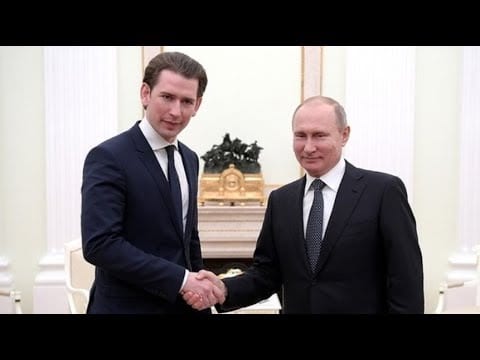Thanks to the Russian special services, Austria is becoming a trendsetter in loud espionage scandals. Such phrases as “Russian intelligence man failed in Vienna” or “Russian spy was found in Austria” will be permanently integrated in everyday life. Given the number of Russian residencies from the Federal Security Service, Main Intelligence Directorate and Russian Foreign Intelligence Agency, operating in the capital of European architecture, this sounds quite natural.
On Friday, November 9, it became known about the alleged agent of the Russian special services in Austria – an officer of the Austrian army, who has transferred information to Moscow over the past 20 years, that was reported on Friday morning by the Polish news channel TVP Info, with reference to the Kronen Zeitung. According to the Kronen Zeitung, the suspect of espionage in the interests of Russia was a retired Austrian colonel and occupied an “inconspicuous post” in the Austrian army. He acted very professionally and received € 300.000 for his work. Every two weeks, the alleged spy met his Russian curator “Yuri” and received tasks. As a result of the work of the “mole”, Russia could get information about the Austria’s air force, artillery systems, high-ranking officials.
Two days later, the same newspaper Kronen Zeitung, with reference to a source, reported on another Russian spy case. According to the information, on November 11, an employee of the Federal Office for the Protection of the Constitution and Counterterrorism was detained. The employee had access to secret documents and handed them over to his curators in Moscow. The spy was discovered as a result of an investigation that lasted for a year.
Austrian Chancellor Sebastian Kurz demanded the Russian side to provide transparent information. The Austrian side believes that such cases will not improve relations between Russia and the European Union, and considers espionage in European countries “unacceptable”.
The agents recruitment from different branches of troops or special services is a fairly common practice for Russian special services in relation to hostile states. But here the situation is somewhat different, since Austria is considered by many to be one of Russia’s main allies in the European Union. This is confirmed by the fact that it was Russia that became the first country beyond the EU, visited by Sebastian Kurz after his post of Chancellor in the fall of 2017. After that, a series of meetings between Putin and Kurz took place, both in a formal and an informal setting, including the wedding of Austrian foreign minister Karin Kneissl, where Mr. Putin was among the honored guests. Austria also became one of the few western countries which had decided not to expel Russian diplomats after poisoning of a former Russian military officer Sergei Skripal and his daughter Yulia Skripal in Salisbury, England.
And now, again, new spy scandals, but now in Austria… Russia in its natural style “#Wecannotbeblamedif…” tried to smooth out the occurred scandal.
But it seems that even for patient Austrians, these cases turned out to be “too much”, and caused the cancellation by Foreign Minister Karin Kneissl and “Putin’s loyal dance partner” of her planned visit to Russia at the beginning of December. It is possible that this decision is a signal of a possible cooling of bilateral relations and that Austria has decided to join the UK, which after the Skripal’s case had decided to impose sanctions against the high-ranking heads of the Main Intelligence Directorate, while hoping to attract the support of key EU players.
In any case, if for Russia it is just the next spy scandal in a series of failures that have recently followed one by one, then for Austria it is quite a serious situation, since it is about its reputation. After all, if Vienna slows down this scandal and does not demonstrate a tough and uncompromising stand regarding Russia, this may aggravate communication with the main EU partners which try to toughen measures against Moscow, and may be also a blow to its reputation as a strong player in international politics and once again confirm that Austria is only a sequacious partner in a waltz with Russia…
